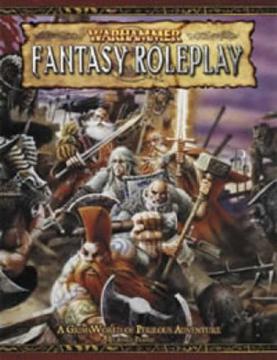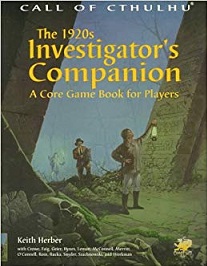In tabletop games and video games, a character class is an occupation, profession, or role assigned to a game character to highlight and differentiate their capabilities and specializations.

Andrzej Ziemiański, also known as Patrick Shoughnessy, is a Polish author of fantasy, science fiction, thriller and crime, who by 2012 have sold over 500,000 copies of his books. Ziemiański was educated as an architect and he holds a PhD in architecture.

Jacek Józef Dukaj is a Polish science fiction and fantasy writer. His fiction explores such themes as alternate history, alternative physics and logic, human nature, religion, the relationship between science and power, technological singularity, artificial intelligence, and transhumanism. He is regarded among the most popular Polish contemporary science fiction authors.

Warhammer is a tabletop miniature wargame with a medieval fantasy theme. The game was created by Bryan Ansell, Richard Halliwell, and Rick Priestley, and first published by the Games Workshop company in 1983.
Witold Chmielecki, better known by the pseudonym of Feliks Wiktor Kres, was a Polish fantasy writer. Winner of the Janusz A. Zajdel Award for his 1992 novel Król Bezmiarów.

Science fiction and fantasy in Poland dates to the late 18th century. However, science fiction as a genre in Polish literature truly began to emerge at the end of the 19th century under the influence of Jules Verne's work. During the latter years of the People's Republic of Poland, a very popular genre of science fiction was social science fiction. Later, many other genres gained prominence.
Polish role-playing games have been in production since the early 1990s. Now there are several games that have been designed in Poland, as well as many translations.
Marc Gascoigne is a British author and editor. He is the editor, author or co-author of more than fifty books and gaming related titles, including Fighting Fantasy books, Shadowrun novels and adventures, Earthdawn novels and adventures, the original Games Workshop Judge Dredd roleplaying game, and material for Paranoia, Call of Cthulhu and many others listed below.

Graeme Davis is a game designer, writer, and editor in the tabletop role-playing game industry.
Magia i Miecz was a Polish magazine dedicated to RPG games. It was the first and longest existing magazine of this type in the country. It was published in 1993–2002 by Wydawnictwo MAG. It was a precursor of RPG in Poland and was influential in propagating and popularizing RPGs in the state. In 2014 the rights for the name was bought by Kuźnia Gier publisher and the magazine as again available for a few years.

Kryształy Czasu was one of the first Polish role-playing games.

Tomasz Kołodziejczak is a Polish science fiction and fantasy writer, screenwriter, publisher and editor of books, comics and role-playing games.

Chris Pramas is an American game designer and writer, as well as a founder of Green Ronin Publishing. He is best known as the designer of the Dragon Age RPG, Warhammer Fantasy Roleplay, and Freeport: The City of Adventure.

Cubicle 7 Entertainment Ltd is an Irish games company that creates and publishes tabletop games. Best known for its Doctor Who and Lord of the Rings games, Cubicle 7 offers titles covering a range of licensed and self-developed properties.

Warhammer Fantasy Roleplay or Warhammer Fantasy Role-Play is a role-playing game set in the Warhammer Fantasy setting, published by Games Workshop or its licensees.

Casus Belli is a French magazine about role-playing games, published in different formats since 1980. It contains news, reviews, interviews, features, and role-playing game materials. The magazine was published by Excelsior Publications until 1999, by Arkana Press in 2000–2006, and by Casus Belli Presse in 2010–2011, and has been published by Black Book Éditions since 2011. Since 2020, it also has the online video companion Casus TV, which is produced in collaboration with Tric Trac.

1920s Investigators' Companion is a role-playing game supplement for Call of Cthulhu by Keith Herber, published by Chaosium. Volume 1 was published in 1993, volume 2 in 1994. An updated single volume of The 1920s Investigator's Companion was published in 1997.
Jarosław Musiał was a Polish illustrator and comic book artist.

Marcin Mortka is a fantasy, historical fiction, children's literature, and young adult fiction author, writing in Polish language. He is also English language translator, and a teacher of English and Norwegian languages.
Trzecia brama is an anthology of Polish speculative fiction short stories, published in 1987 as part of the Fantastyka polska series by Wydawnictwo Literackie. The collection features 15 texts selected by a five-member jury from 689 entries submitted to a contest held by the magazine Fantastyka. These stories represent a variety of voices from the emerging Polish science fiction scene between 1982 and 1983.











